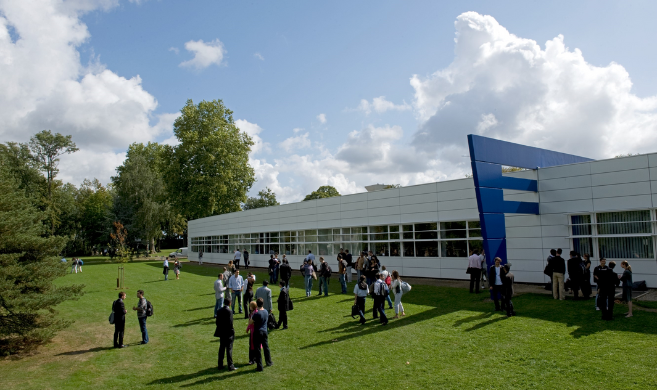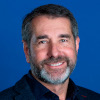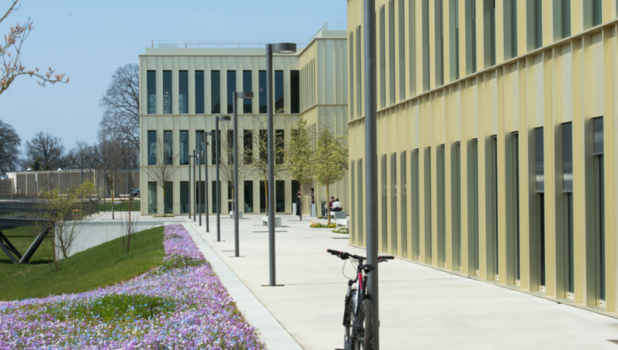François Collin, can you explain your role in the school’s transition to sustainability?
My role as the CSO is to stimulate and coordinate HEC Paris’ sustainable environmental and social transformation. It's a job that involves change management, with an approach that, in the end, is quite similar to what I have done throughout my international career. We know the path we are taking, but we don’t know where the finishing line is: each step forward we make, we see two more steps we are determined to take. The most important aspect of my role is to actively involve all the staff at the school and the HEC community at large and to work with all parties on their sustainability roadmap, from the Dean and the Executive Committee to all departments and student and alumni representatives. It goes without saying that I work hand-in-hand with our colleagues in the Sustainability & Organizations (S&O) Institute, who are incorporating this mission into the academic body for research and education and are undertaking ambitious fundraising work. We also have our own specific assignments in the Sustainability Team, like any CSR department has: compliance, certification labels and CSR reporting, the carbon audit and net-zero pathway, internal and external communication when you have to speak with one voice, and relations with stakeholders.
The most important aspect of this role is actively involving all school staff and the HEC community at large and working with all parties on their sustainability roadmap.
What is HEC’s transition roadmap?
Our sustainability strategy, “Transition,” has been carefully debated and co-designed with multiple stakeholders since 2020. The priorities for the year ahead are discussed every year in the Executive Committee based on proposals from each member. The strategic plan and the key achievements in 2022-2023 can be consulted here (in French).
The objectives are organized on the school’s Think, Teach, Act, Campus, and People pillars and the cross-functional axis of decarbonization. This means that HEC 's Climate Plan forms a sub-section of the Transition strategy. And, to have the complete picture of the school's responsible impact policy, you also need to factor in the DEI (Diversity, Equity, and Inclusion) roadmap, which is delivered under the aegis of our Chief Diversity Officer, Marcelle Laliberté.
In a recent article in the Harvard Business Review, ESG experts Robert G. Eccles and Alison Taylor explained that the role of the CSO is shifting dramatically, from "acting like stealth PR executives" to a more strategic role in the C-suite. To implement HEC’s strategic roadmap, how do you coordinate with the different internal and external stakeholders?
Indeed, the main role of a CSO is to engage his/her institution in a strategic roadmap and, just as importantly, to make sure it is implemented. In our case, it means nurturing the dialogue with all circles, through representatives of the Sustainability Team or the S&O Institute: with the school’s various management teams; faculty and staff; donors and corporate partners; the three student sustainability associations (ESP'R, Net Positive, and the MBA Sustainability Club); and, for alumni, with the HEC Transition Club, which operates internationally. The staff, HR, and Communication teams play a key role in events and training programs such as the Climate Fresk, the “2Tonnes” workshop, and the “Planetary Boundaries” session. This year, we are also relaunching the Sustainable Campus Committee, which includes staff, faculty, and student representatives so that it can put forward proposals and deliver projects using the Sustainability Fund.
How do you manage and balance the different expectations of the stakeholders, including student activists?
The most important thing is to listen to them and keep the dialogue open, respecting the views of everyone: Change comes from the rich array of suggestions that people put forward. You have to be very careful not to pigeonhole anybody. Who are activists? Protesters or trailblazers? The HEC Grande Ecole curriculum reform that has been conducted over the past year echoes demands by the Ecological Awakening student manifesto published back in 2018: sustainability and all the major challenges facing society are now the cornerstones of the new curriculum. The policy on oil and gas companies that the student association ESP'R has been advocating for is similar to the September 15, 2023 opinion piece by 300 scientists addressed to the French government. It calls for a moratorium on hydrocarbons. What if today's student activists become tomorrow’s speakers at the HEC graduation ceremonies’ two decades from now?
How do you allocate resources to address those demands?
I don't hold the keys to the safe for allocating resources! What’s most important is to align the school's strategy so that its budget can support the goal of sustainability. When Yann Algan, our Associate Dean of Pre-experience Programs, directs the reform of the Grande Ecole curriculum, it mobilizes all resources and all staff. When Deputy Director General Eric Ponsonnet, Real Estate Director Cristina Hay and the Deputy General Management team prepare for renovating and developing the Green Campus, we’re talking about a major investment. And, when it comes to supporting academic breakthroughs, the teams from the HEC Foundation, HEC Corporate Partnerships, the S&O Institute, and now the Impact Finance Center enjoy a significant response amongst donors. When they witness a determined effort and a collective will, the resources soon follow.
The Sustainability Team:
François Collin, Chief Sustainability Officer
Carole Decamps, Climate & Sustainability Project Director
Marine Franchino, Decarbonization Project Manager
(Podcast in French) Comment engager toutes les parties prenantes d’une école au service d’une vision collective pour la transition écologique ?
Filmed interview in French:









